Hybrid hospitality is a modern form of hospitality, where traditional experiences are combined with the flexibility to adapt to guest needs. This approach places an emphasis on multi-purpose spaces.
Hybrid services have grown in importance because many guests now want to combine leisure, business and well-being experiences. With flexible design and careful space management, your business can deliver this.
In this article, you can learn about hybrid hospitality and why it matters, explore the key elements of hybrid hospitality implementation and discover some of the underlying technology powering this revolution.
Table of Contents:
- What is Hybrid Hospitality?
- Why is Hybrid Hospitality Important?
- 5 Key Elements of Successful Hybrid Hospitality Implementation
- 5 Benefits of Hybrid Hospitality for Modern Properties
- 5 Core Technologies Facilitating Hybrid Hospitality Solutions
- Essential Considerations for Hybrid Hospitality Success
- Implementation Strategies for Hybrid Hospitality
- Understanding the Key Hospitality Trends
- Major Hotel Trends Disrupting the Industry
What is Hybrid Hospitality?
Hybrid hospitality describes an approach to hospitality where traditional services are combined with flexible hospitality offerings. In particular, it involves the use of multi-functional spaces, which can be freely adapted.
This flexible hospitality approach aims to provide a combination of leisure, business and well-being services. The same space in your hospitality business can potentially be converted into different configurations.
Hybrid hospitality relies on careful space planning, flexible design, innovative technology and the provision of varying services. For example, at different times, the same room could function as a work space or a relaxation area.
Why is Hybrid Hospitality Important?
Hybrid hospitality is important because modern guests have varying needs. For example, there are a greater number of ‘bleisure’ travelers, who combine the needs of leisure and business travelers.
For hotels and other businesses in the hospitality industry, hybrid offerings can increase and diversify revenue. This approach also allows businesses to make the best possible use of the space available.
This kind of innovative hospitality approach means you can easily adapt to changes in the market too. This is important because it helps to ensure you remain competitive, even as customer expectations change.
5 Key Elements of Successful Hybrid Hospitality Implementation
In the following sections, you will discover some of the critical elements of successful hybrid hospitality implementation.
Video: What is “Hybrid Hospitality”? TSH Founder Explains
1. Flexible Space Design
Hybrid hospitality relies on flexible space design, which means spaces in your premises can be easily converted to serve different purposes. This could mean using modular furniture or items that have multiple functions.
Flexible space design is important because it allows key areas of your property to become truly dynamic. This can help you to ensure every space is being used for something at all times, maximizing operational efficiency.
In a hotel, a co-working space through the day could be converted into a social area during the evenings. In a bar, a space could be used for general customers at some points, but converted to a private function room at other times.
2. Technology Integration
Innovative technology and its effective integration is crucial for a hybrid hospitality strategy. This can include everything from the use of smart devices and IoT technology, to mobile apps and booking systems.
For hospitality companies and their guests, technology facilitates much of the flexibility of a hybrid approach. Guests need options for booking facilities or requesting particular room configurations.
Many of the key hospitality trends are also based on contactless offerings, including contactless check ins, check outs and app-based bookings. This can result in a more seamless guest experience.
3. Service Personalization
Hybrid hospitality involves providing services that are tailored to individual needs. This requires the hospitality business to adapt spaces and facilities, so guests can strike the right balance between business, leisure and well-being.
Personalization is important because guests have significantly different needs. A family on a leisure vacation may want their room set up differently from a business traveler who intends to work during their stay.
It is important to provide ways for guests to express their preferences. You may also be able to make use of data analytics to anticipate the preferences of certain guests in advance.
4. Revenue Optimization
Revenue optimization requires you to take steps to ensure your business earns as much money as possible from hybrid hospitality features. It includes setting the right prices and offering the right services and facilities.
This is essential because you need to make sure your approach is financially viable. Analyzing your results enables you to better understand your areas of strength and weakness.
By using integrated hospitality technology, you can identify the patterns in how space is utilized and make adjustments to your hospitality offerings. Wider market analysis can also help you to identify new money-making opportunities.
5. Community Engagement
The best hybrid hospitality brands foster positive relationships with their local community. Doing so allows you to not only attract travelers, but local people and businesses too.
Engagement with the local community is important for maximizing demand and revenue. It allows you to develop revenue streams that may not be possible when appealing only to travelers from distant locations.
You can potentially host events for local businesses or charities, or create partnerships that will serve your guests. One of the biggest benefits of appealing to local people is the opportunity to attract repeat visits.
5 Benefits of Hybrid Hospitality for Modern Properties
Here, you can take a closer look at some of the benefits associated with hybrid hospitality offerings.
Video: How hybrid hospitality properties are reshaping the guest experience
1. Enhanced Space Monetization
A hybrid hospitality approach allows you to make the most of the space you have available. With flexible hospitality, you can provide different facilities at different times, increasing your earnings.
Within modern hospitality, it is essential to optimize your real estate investments. Every square foot counts and by monetizing space in different ways at different times, you can increase your ROI.
In traditional hospitality settings, many spaces are left unused at certain times, like business facilities at night time. By converting these areas so they have additional uses, you can become more profitable.
2. Improved Guest Experience
Hybrid hospitality features help you to tailor the experiences on offer to each individual guest. This results in improved guest satisfaction, with customers able to capitalize on the increased adaptability.
Boosting the guest experience is important because you need to build a positive reputation. Satisfied guests are more likely to leave positive reviews, recommend you to friends and family, and become brand advocates.
Try to find ways to combine traditional experiences with unique offerings, so you can reach a variety of guest types. When you offer personalized and innovative hospitality experiences, you are more likely to impress.
3. Operational Cost Reduction
By using spaces for multiple purposes, you can save money that would otherwise be spent on providing dedicated areas for each function. After some initial investment, the cost-savings can boost your financial outcomes.
Reducing operational costs is important because it can increase your profit margins, especially when combined with revenue generating strategies. You may be able to lower costs in terms of space usage, maintenance and staffing.
By improving the way you use resources, you can reduce the amount you need to spend to provide essential services. Hybrid hospitality can also streamline workloads for employees, improving productivity.
4. Increased Market Research
Hybrid hospitality offerings provide a clear way to gather information about guest preferences. Bookings and usage data can deliver valuable market research, allowing you to better understand your customer base.
Market research is important for providing information about what guests want, like and dislike, and how they feel. It also allows you to embrace hospitality marketing trends and target guests effectively.
Try to gather feedback from your guests about the nature of their visit. By understanding the number of leisure travelers, business travelers, digital nomads and wellbeing visitors you attract, you can optimize services.
5. Future-Proof Business Model
A hybrid hospitality strategy can future-proof your business. Modular designs and flexible space planning allows you to easily add new features and technology as they become available.
This is important for the long-term viability of your business. If your spaces are adaptable, you can easily contend with industry changes and make the necessary adjustments to meet future expectations.
In more traditional hospitality spaces, the emergence of new technology and trends could require large-scale renovations. With hybrid models, supported by integrated technology, you can avoid these costs.
5 Core Technologies Facilitating Hybrid Hospitality Solutions
The following sections cover some of the most valuable technology solutions for hybrid hospitality businesses:
1. Smart Space Management Systems
Smart space management systems are software packages that allow you to manage how different parts of your property are used. Features may include real-time tracking, booking and space allocation.
This is important for coordinating your hybrid hospitality services. It can help you to avoid situations where the same space is needed for two different uses and allows you to understand usage patterns.
The best smart space management systems also provide integrated hospitality technology features. This allows smart devices, sensors and mobile apps to share valuable usage data with the software.
2. Integrated Booking Platforms
Integrated hospitality booking platforms help to facilitate the use of hybrid hospitality facilities. These systems can handle everything from room bookings with clear guest preferences, through to booking meeting rooms.
Booking platforms are vital for hospitality brands and their guests, allowing spaces to be used for the right purpose at the right moment. Ultimately, making booking easy can increase revenue.
Make sure you invest in an integrated hospitality booking system that allows you to process payments and share data with other systems. Guests should also be able to view real-time availability information.
3. Hybrid Hospitality Mobile Apps
Hybrid hospitality offerings can be improved through intelligent deployment of mobile apps. These apps can be used by guests to set preferences, request services or make bookings.
Mobile apps are an important part of the modern hospitality industry, making it easier for guests and service providers to communicate. Data from the app can also be used to enhance personalization efforts.
In addition to allowing guest to make requests for how space is used, the app could also make intelligent recommendations, based on past behavior. This can help you to generate additional bookings and revenue.
4. Automated Service Systems
Hybrid hospitality systems can make effective use of AI to automate routine tasks associated with service delivery. This may include managing climate controls and tracking inventory information.
Automation helps to reduce the amount of work staff need to do and can boost operational efficiency. AI-powered automation is potentially available on a 24/7 basis and may reduce human error.
Hybrid hospitality services are complex, due to the dynamic approach. By automating some of the more predictable and mundane tasks, you can ensure staff are available to prioritize tasks that need human ingenuity.
5. Analytics and Reporting Tools
Analytics and reporting tools can allow hybrid hospitality brands to better understand how space is used and what the outcome of that usage is. As a result, you can prioritize the right services and facilities.
These tools are important for providing tangible data about guest preferences, demand patterns and revenue trends. This helps you to make strategic decisions, backed up by clear evidence.
AI-powered software can quickly and easily analyze booking data and guest preferences to extract insights and create reports. You can also potentially forecast future demand, so you can set up spaces accordingly.
Essential Considerations for Hybrid Hospitality Success
Take a closer look at the main considerations before implementing hybrid hospitality solutions:
- Spatial Planning: Plan and design versatile spaces, which can be adjusted to serve different uses. Make sure your hybrid hospitality plans juggle visual appeal and functionality.
- Technology Infrastructure: Use integrated systems, with data-sharing features. Ensure your technology can contend with bookings and facilitate seamless changes in how space is used.
- Staff Training Programs: Make sure your employees have the knowledge and skills to work in hybrid hospitality. Teach staff to use modular systems to alter how spaces are used.
- Revenue Strategy: Have clear procedures in place for setting prices. Ensure your offerings are competitive with the wider market, but provide a clear return on investment.
- Market Research: Speak to customers to understand where demand lies. Optimize space usage based on feedback.
- Quality Standards: Do not sacrifice quality for adaptability. Make sure all of your services and facilities retain high standards to maximize guest satisfaction.
Implementation Strategies for Hybrid Hospitality
The following approaches can all help you to transition your property into a hybrid hospitality business:
- Space Assessment: Assess available space and the way facilities are used. Identify spaces that are unused at key times and consider how to make them more flexible.
- Digital Solutions: Provide user-friendly booking systems for guests. Allow customers to book spaces for specific uses to maximize guest satisfaction.
- Hybrid Hospitality Design: Make use of modular furniture and layouts to adapt to different needs. Ensure adaptation is quick and easy to guarantee operational efficiency.
- Community Focus: Build meaningful relationships in the local community. Use your dynamic spaces to host events, cater for local guests and increase demand.
- Performance Metrics: Monitor usage and establish key performance indicators. Track performance over time and make adjustments to spaces that are not delivering in revenue or guest satisfaction.
- Sustainability Planning: Appeal to eco-conscious travelers by using sustainable hybrid hospitality practices.
Understanding the Key Hospitality Trends
Hybrid hospitality is a forward-thinking approach to providing guest services, but it requires an understanding of current and emerging trends. At present, this includes the rise of AI, increased demand for sustainability, the growth of ‘bleisure’ travel and the expectation of health and well-being offerings.
In the “Hospitality Trends: The Latest Trends in The Hospitality Industry” article, you can more closely examine emerging technologies, services, strategies and guest expectations.
Major Hotel Trends Disrupting the Industry
One of the biggest areas where hybrid hospitality is thriving is within the hotel industry. However, businesses offering hybrid guest accommodation need to be aware of the specific trends disrupting the industry, with examples including mobile check-in technology, increased use of robotics and the importance of personalization.
In the “Hotel Trends: Discover The Latest Hotel Industry Trends” article, you can take a look at these trends and many more, so you are equipped to deliver what guests expect in the years to come.
Did You Like This Article about Hybrid Hospitality?
You might also be interested in the following articles:
- Corporate Hospitality: Successful Planning and Implementation
- Hospitality Manager: List of The Best Job Boards to Boost Your Career
- Ways to Improve Customer Experience in the Hospitality Industry
- Hospitality Marketing Agency: Your Guide to Achieving Strategic Growth
- Hospitality Management: The Essentials About Hospitality
Hybrid hospitality is an approach to hospitality where dynamic spaces and can be used for multiple purposes. This adaptability can optimize space utilization and your earnings potential, but you need to invest in high-quality technology, modular furniture and software solutions to facilitate this.
More Tips to Grow Your Business
Revfine.com is the leading knowledge platform for the hospitality and travel industry. Professionals use our insights, strategies, and actionable tips to get inspired, optimize revenue, innovate processes, and improve customer experience.Explore expert advice on management, marketing, revenue management, operations, software, and technology in our dedicated Hotel, Hospitality, and Travel & Tourism categories.

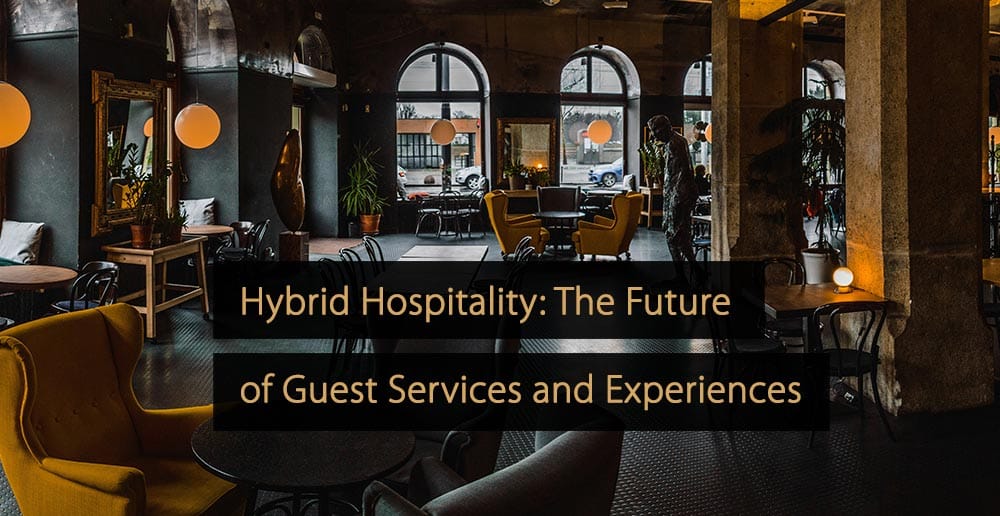
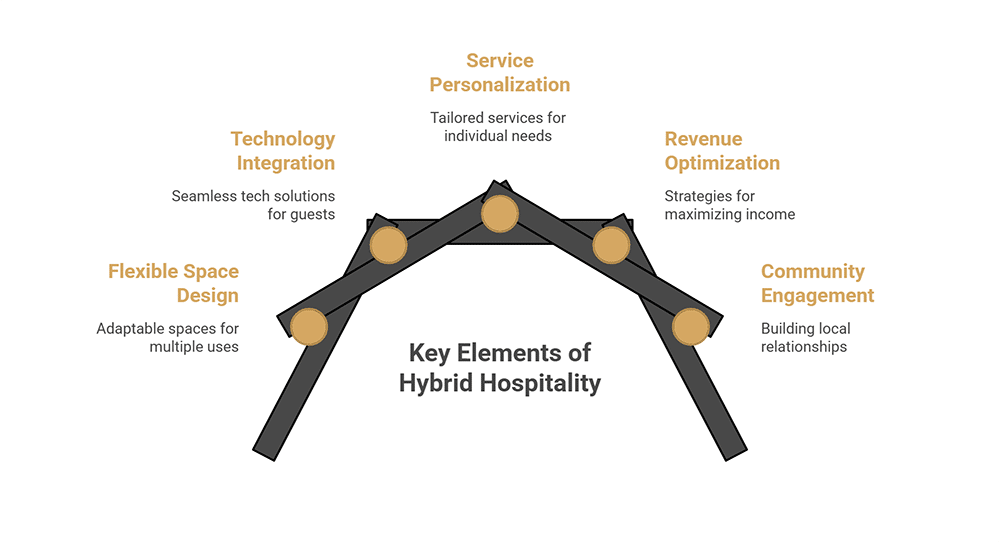
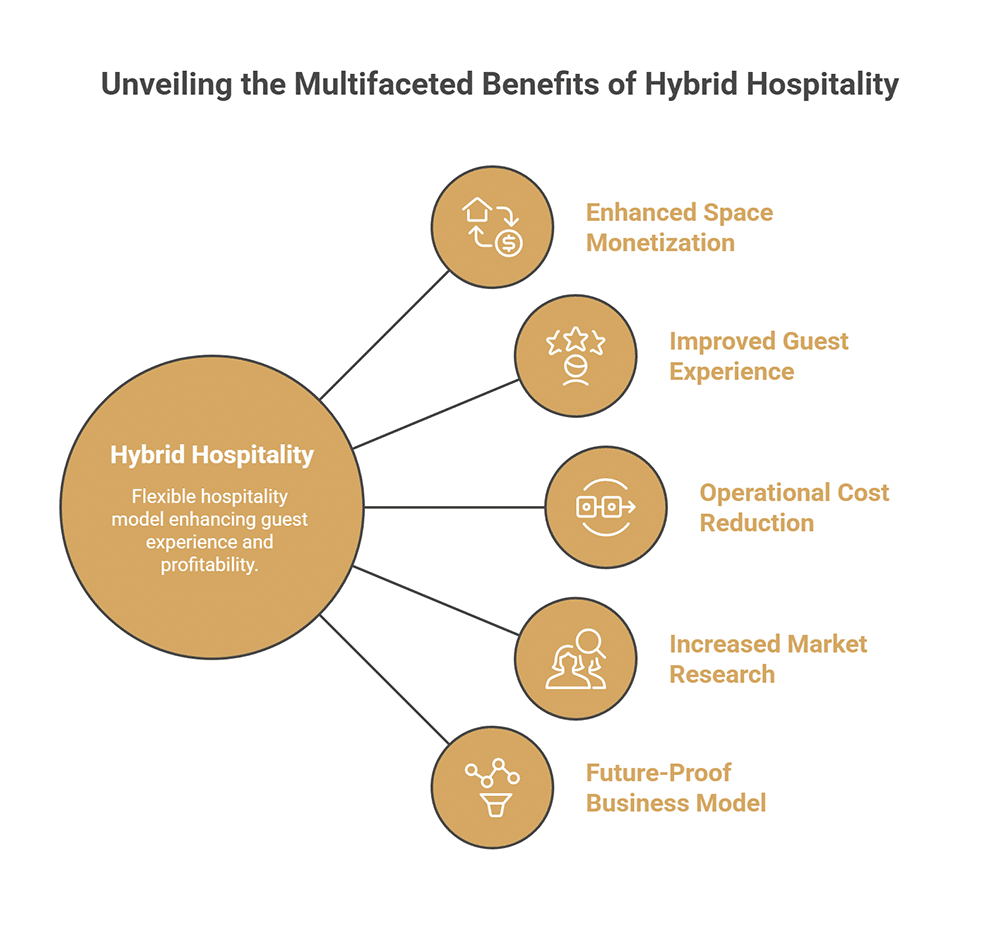
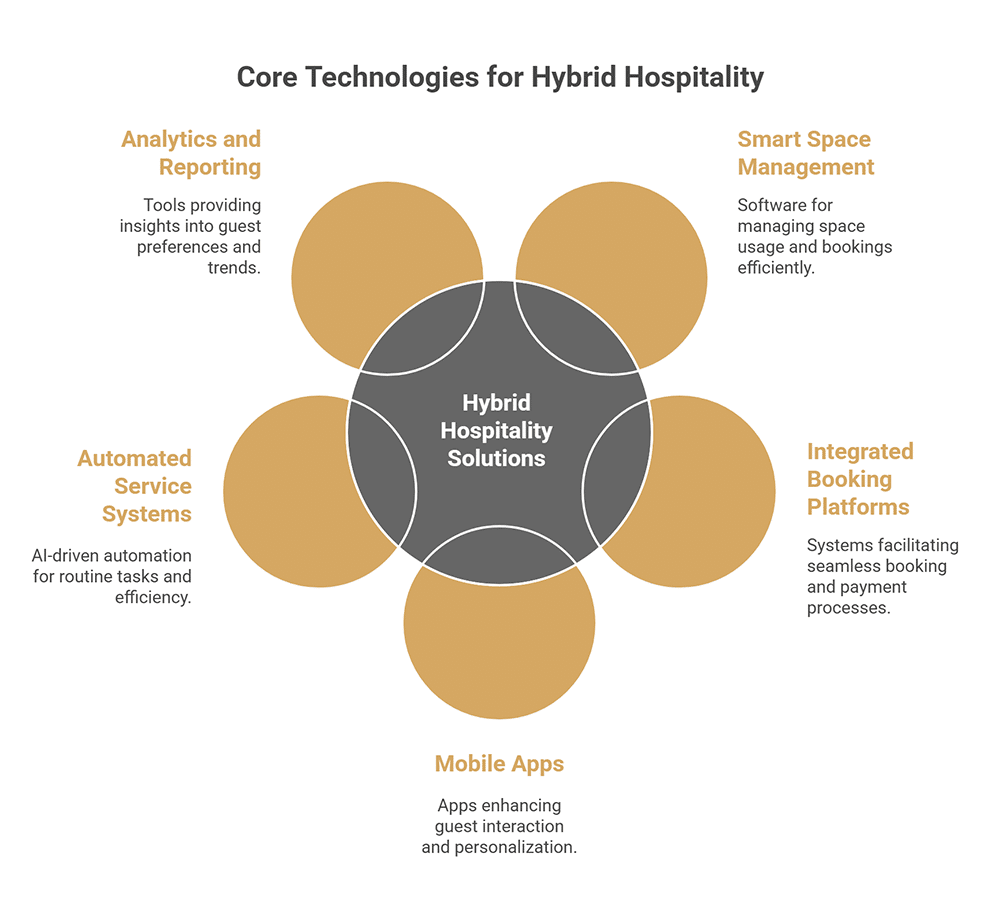


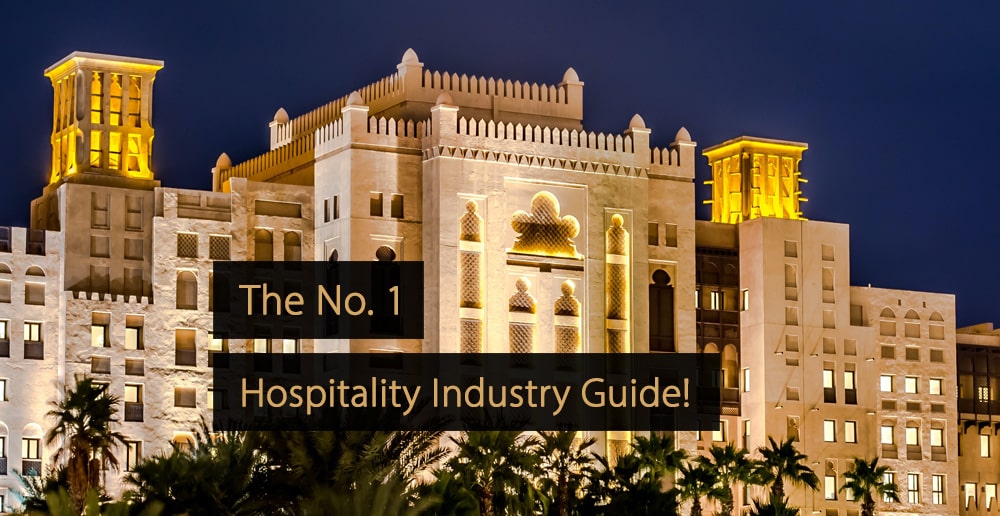

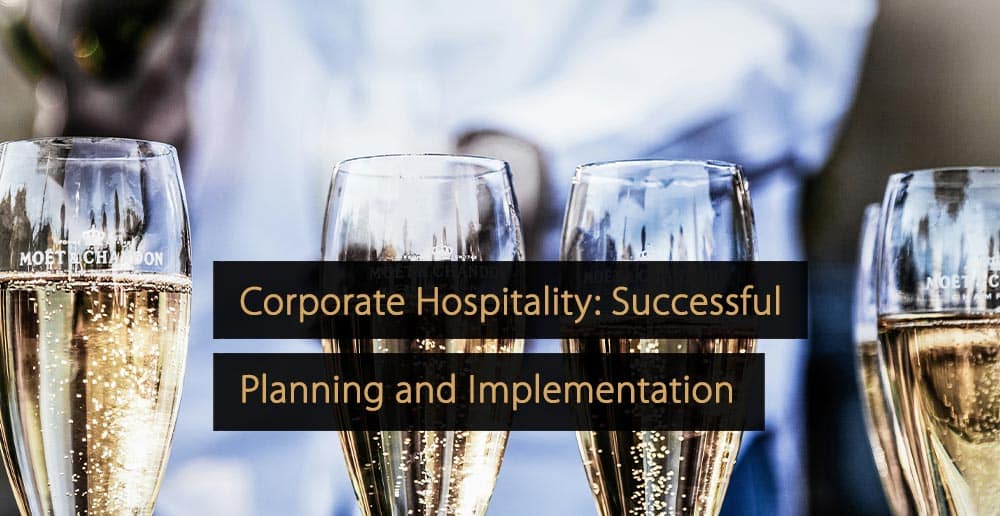
Leave A Comment